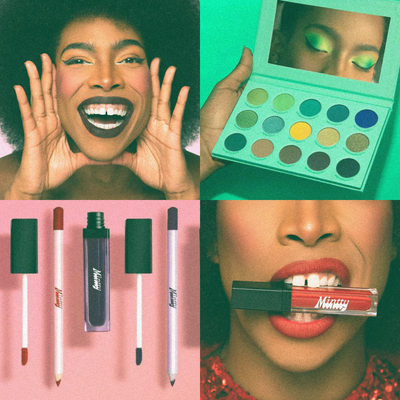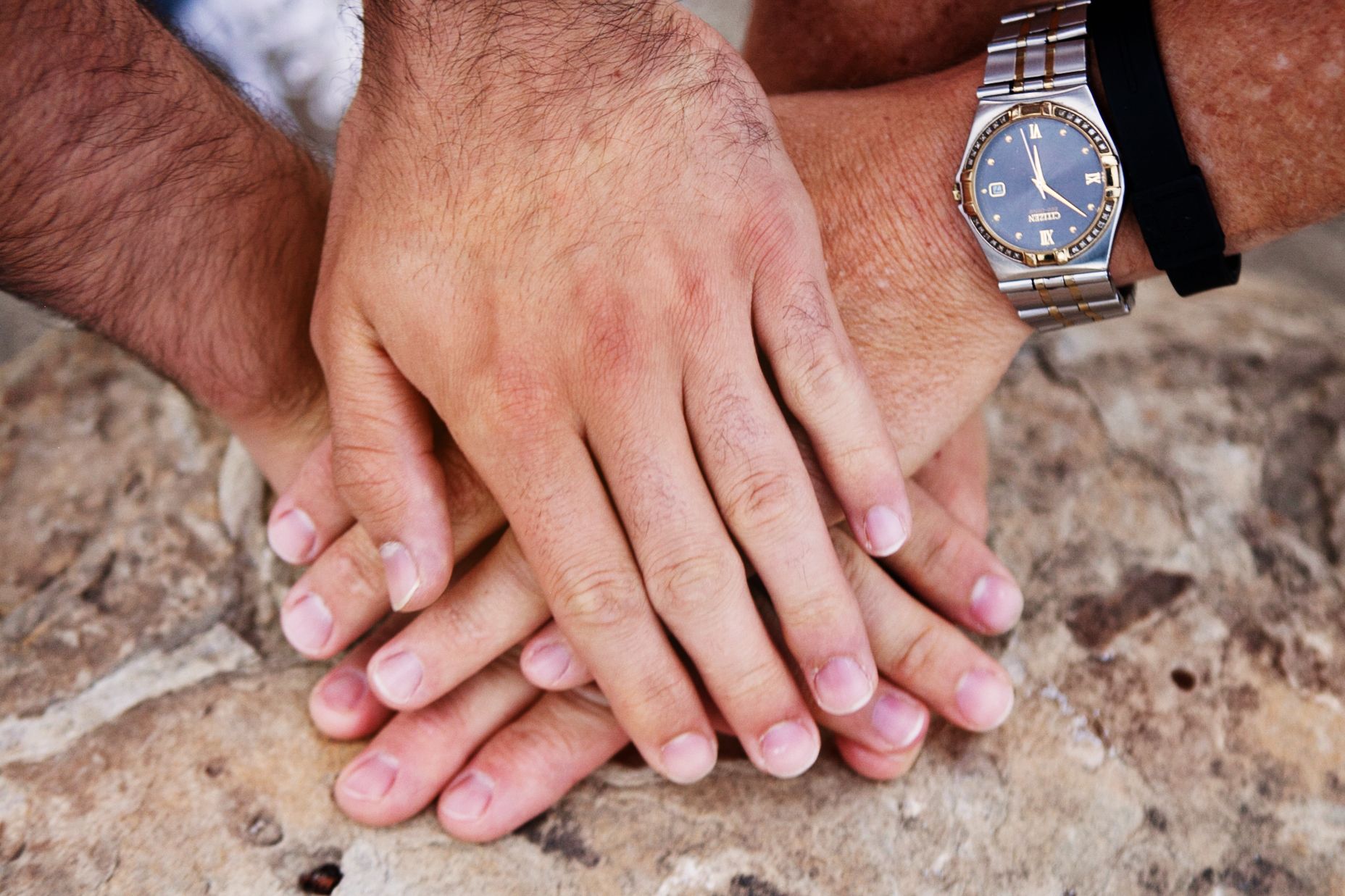

Fathers and sons around the world share a unique bond. To explore this sentiment, Very Good Light has partnered with Gillette, a brand that’s over 115-years old. Through the years, Gillette has celebrated fathers and sons and the power of their relationship, generation after generation. The brand’s latest campaign, “Your Best Never Comes Easy,” continues the message in 2018 and beyond, depicting how a father’s love and encouragement can pull a son through any obstacle. According to recent research commissioned by Gillette, supportive fathers play an especially outsized role in helping their sons achieve success despite adversity. Below, we came together to highlight five father and son pairs from across the country. This Thanksgiving, each share their unique and empowering stories of overcoming one big obstacle in life thanks to the support they found in their shared bond.
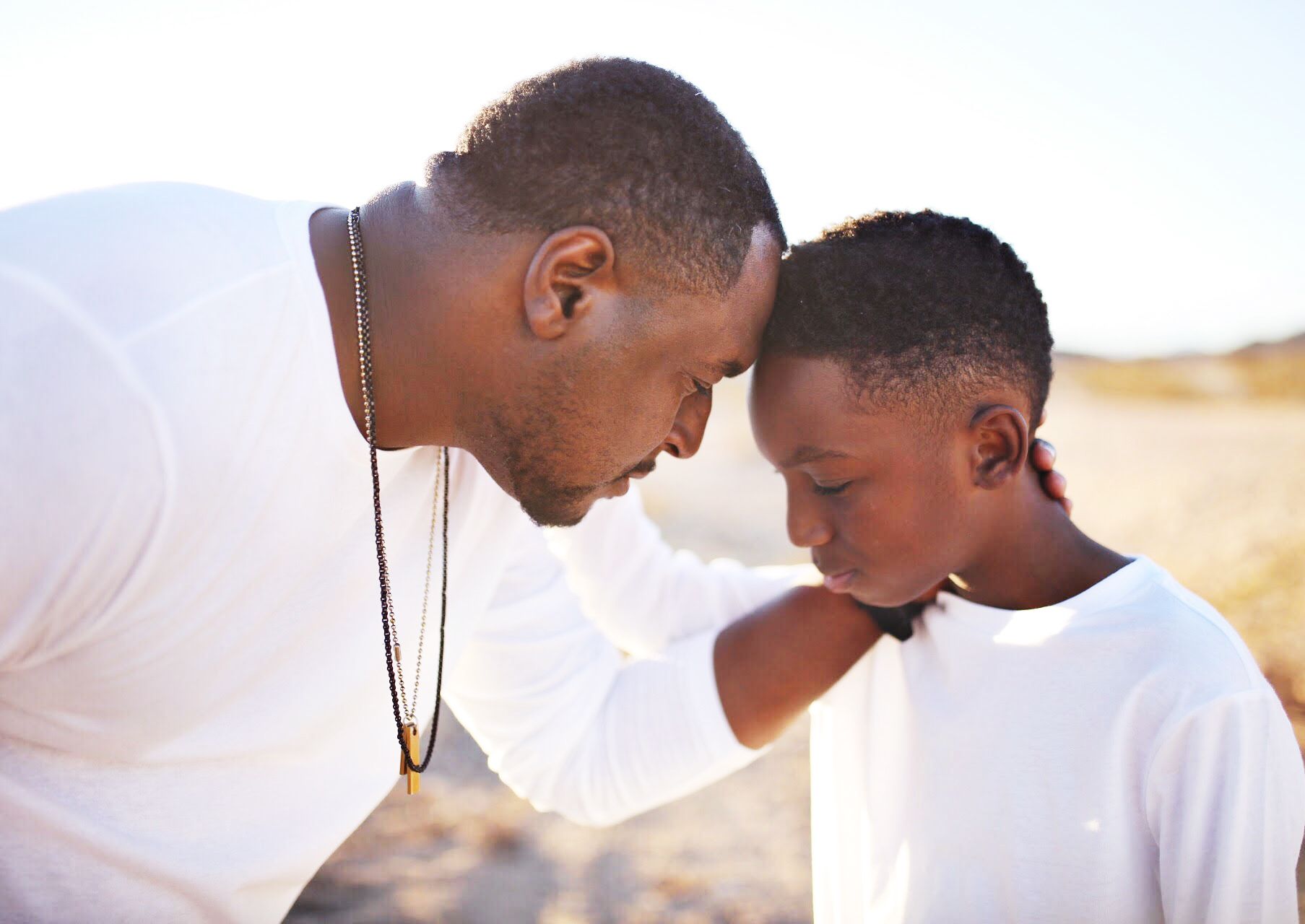
As James Mays will tell you, he only became a real man when he became a father.
His own father was out of the picture. And he had to navigate manhood while growing up in Los Angeles with his mother, two sisters and female cousins.
“I went through that manly man thing,” he says to us from Las Vegas, on a recent weekend. “I was in the house with just ladies and I needed to prove that I could be a man without a man around.” They weren’t supposed to cry. They were tough. They had it all together.
SEE ALSO: 5 guys get real about modern masculinity
And so, when he had his own son, Jaynen, he was compelled to raise him in a way he’d imagined his own father would have. “I felt I had to prove to myself what a father was from what I learned from other people’s fathers,” he tells us. That meant being a “hard figure,” always having everything figured out, being strong and not asking for help with physical things like moving furniture.
“Men aren’t supposed to care about that. It’s a handshake, not a hug. It’s being distant. But Jaynen taught me affection and how being a man was about providing love.”
“I was channeling that old school 50’s dad – I go to work, come home, eat dinner and get the remote,” he tells Very Good Light. “I’ll tell you what to do. I know the answers. I’m the strong one.”
Being emotional or sensitive – or soft – were unacceptable.
It wasn’t until his young son began showing his physical affection that James was able to redefine what being a man was all about. “My son would give me hugs and say, ‘Dad, I love you,'” he recalls. That very act started to thaw James’ wall.
https://www.youtube.com/watch?v=kbHXIN6EzWo
Soon enough, James found that the intimate moments – the cuddles during movies, the hugs goodnight – became commonplace. “Men aren’t supposed to care about that. It’s a handshake, not a hug. It’s being distant. But Jaynen taught me affection and how being a man was about providing love.”
“Men who are comfortable with displaying care, nurturance, and healthy emotions also model healthy masculinity for their sons.”
James admits this is far from what he believed was considered the norm. “I grew up watching guys like (All In The Family’s) Archie Bunker. Tim ‘The Toolman’ Taylor. Martin. All men who were macho, masculine, fronted for their boys. Being sensitive became a joke.” Today, James says that the new definition of strong fatherhood is being vulnerable. “It’s about opening up and admitting that you, as a man, don’t always have the answers. But that’s okay.”
James joins a growing movement of fathers who have rejected previous notions of hyper-masculinity, and instead are providing their sons with emotional support. This new generation of men are redefining what fatherhood means – and therefore changing the face of masculinity altogether. Because when it comes to father-son relationships, historically, it’s been fraught.
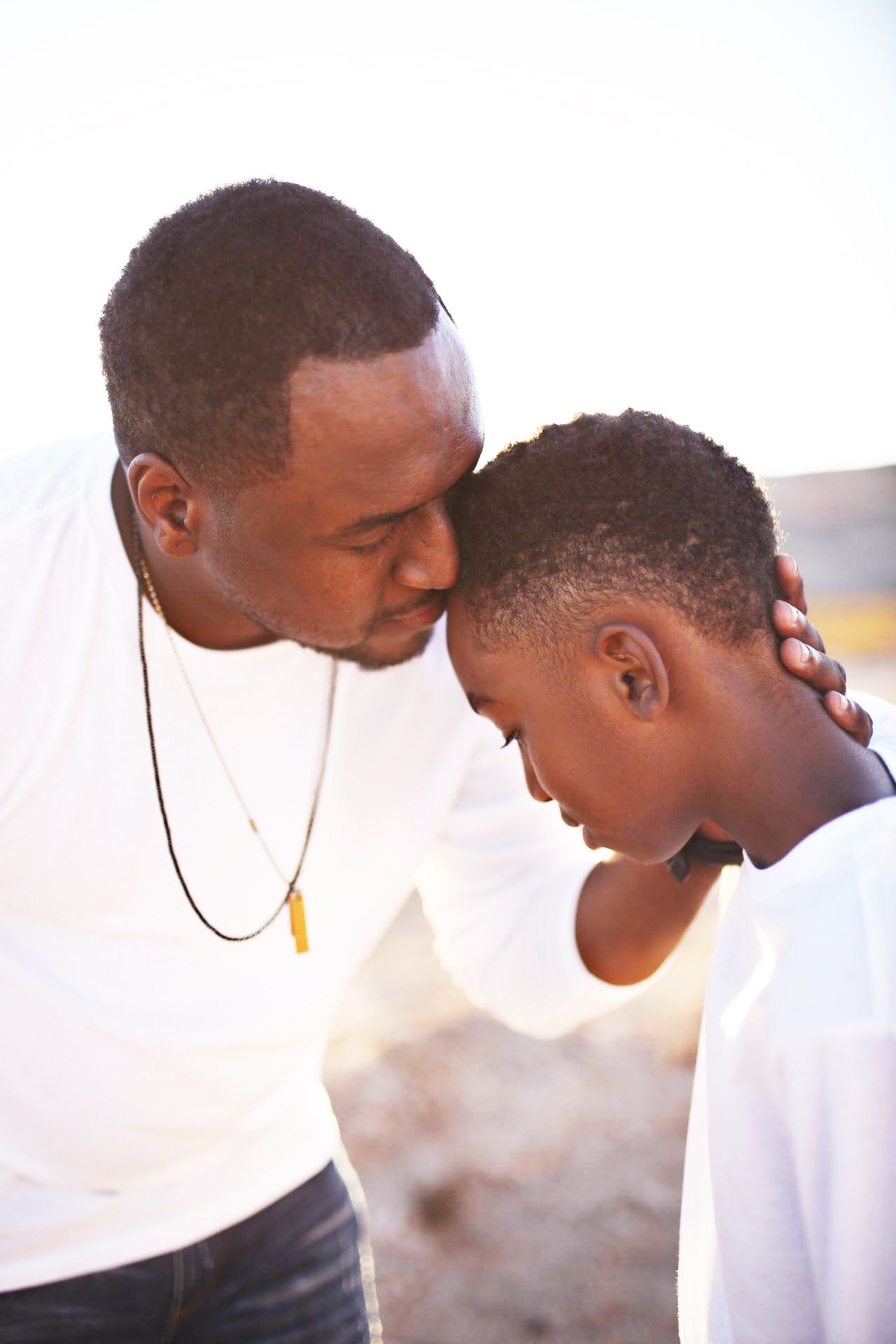
For hundreds of years, the very concept of fatherhood was being the sole breadwinner, which often meant that there was little to no time to build relationships with children, says Dr. Wizdom Powell, associate professor at the department of psychiatry at the University of Connecticut.
“In the past, ‘good’ fathering was largely associated with breadwinning and economic provision,” she says. “Men were not incentivized to share in the broader socio-emotional development of the children or household responsibilities.”
The relationship, then, became determined not by love or nurturing but rather, defined monetarily. Masculinity, for these fathers, meant clocking in and out of work and being sole provider. An article in Psychology Today goes so far as to describe that “all fathers’ functions were economic,” and that role was taken very seriously – often to an extreme. Fathers, especially in low income to middle class settings, felt their sole purpose was to economically support their families. This, in turn, led to families without present father figures, or ones who felt distant and emotionally detached even when they were physically there. The repercussions were vicious – and lasting. The cycle of emotionless fathers bred emotionless sons who became adults who would do the same to their children.
“Men are socialized to display toughness and this socialization carries over to their fathering roles and expectations,” says Dr. Powell, to Very Good Light. “Men who are comfortable with displaying care, nurturance, and healthy emotions also model healthy masculinity for their sons.” In other words, she says, caring men become caring fathers.
“I used to think men weren’t supposed to [be vulnerable],” James tells us. “Men don’t care about those things. They don’t care about emotions or feelings. Today, he’s learned that being a strong man is not about physical strength or a lack of emotions, rather, the opposite.” Jaynen’s generation is more in touch with who they are,” he tells Very Good Light. “They have a lot less hate and more understanding. They’re able to communicate with each other more openly. When we don’t deal with affection or feelings it cause a huge void. Jaynen allowed me to learn that.”
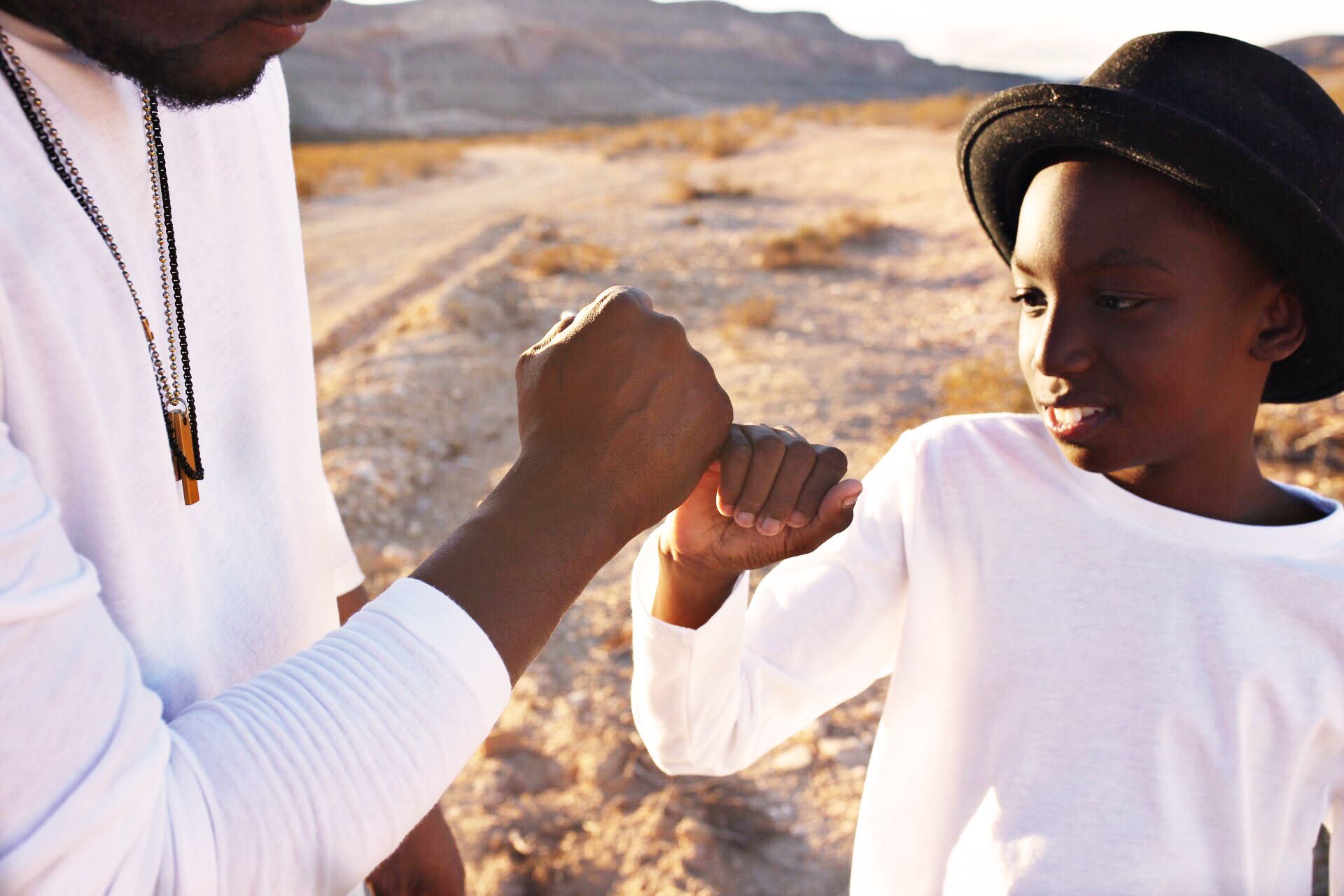
Though science proves how crucial relationships are from a developmental standpoint, they fail to explain the phenomenon of the deep bond between a father and son. For that, we turn to the abstract, the metaphysical – the spiritual. Below, we explore how other fathers and sons, like James and Jaynen, are redefining masculinity through the act of vulnerability.
Each pair recounts one specific story of how they got the other through a seemingly insurmountable obstacle. Each story is unique and proves just how fathers and sons – and their intimate relationships – are powerfully changing for the better.
Al-Tereek, 44 and Jai, 16, New Jersey
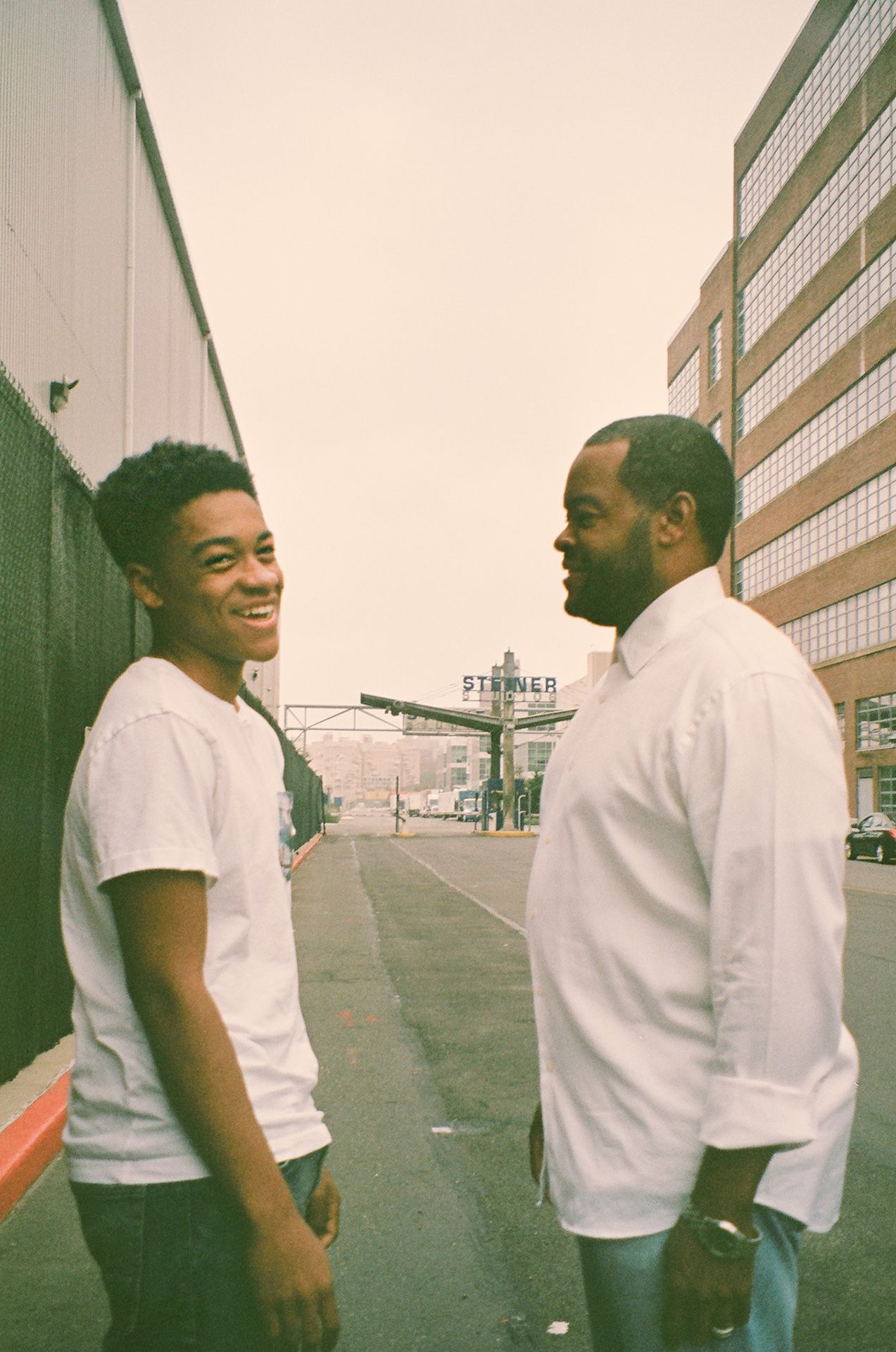
Jai Battle is a 16-year old with a diverse array of interests.
He’s varsity on his track team, a member of model U.N., is in the string orchestra. He’s also become an inadvertent activist. That’s because in Jai’s hometown of Montgomery, NJ, he is one of only a handful of people who look like he does. Just 2% of the town’s population is African American.
Being categorically the “other” has become the norm for Jai. Sometimes, it’s being asked where he really came from. At other times it’s being called the N-word. That occurred at an early age, an experience that Jai recalls as being both shocking and confusing.
“This is what it’s like to be black in America.”
“‘Scrub the black off,'” someone told him. As Jai recalls: “He said to do so with soap so I could be cleaner, as if being black was dirty.” When he came home, upset, it was his father Al-Tereek, who sat him down to unpack what just happened. It wasn’t an easy conversation, Al-Tereek remembers. But it’s one that he’d been waiting for. He’d gone through experiences like Jai’s himself, and to have to finally talk about race, blackness and American culture was something he was prepared for.
“This is what it’s like to be black in America,” he said.
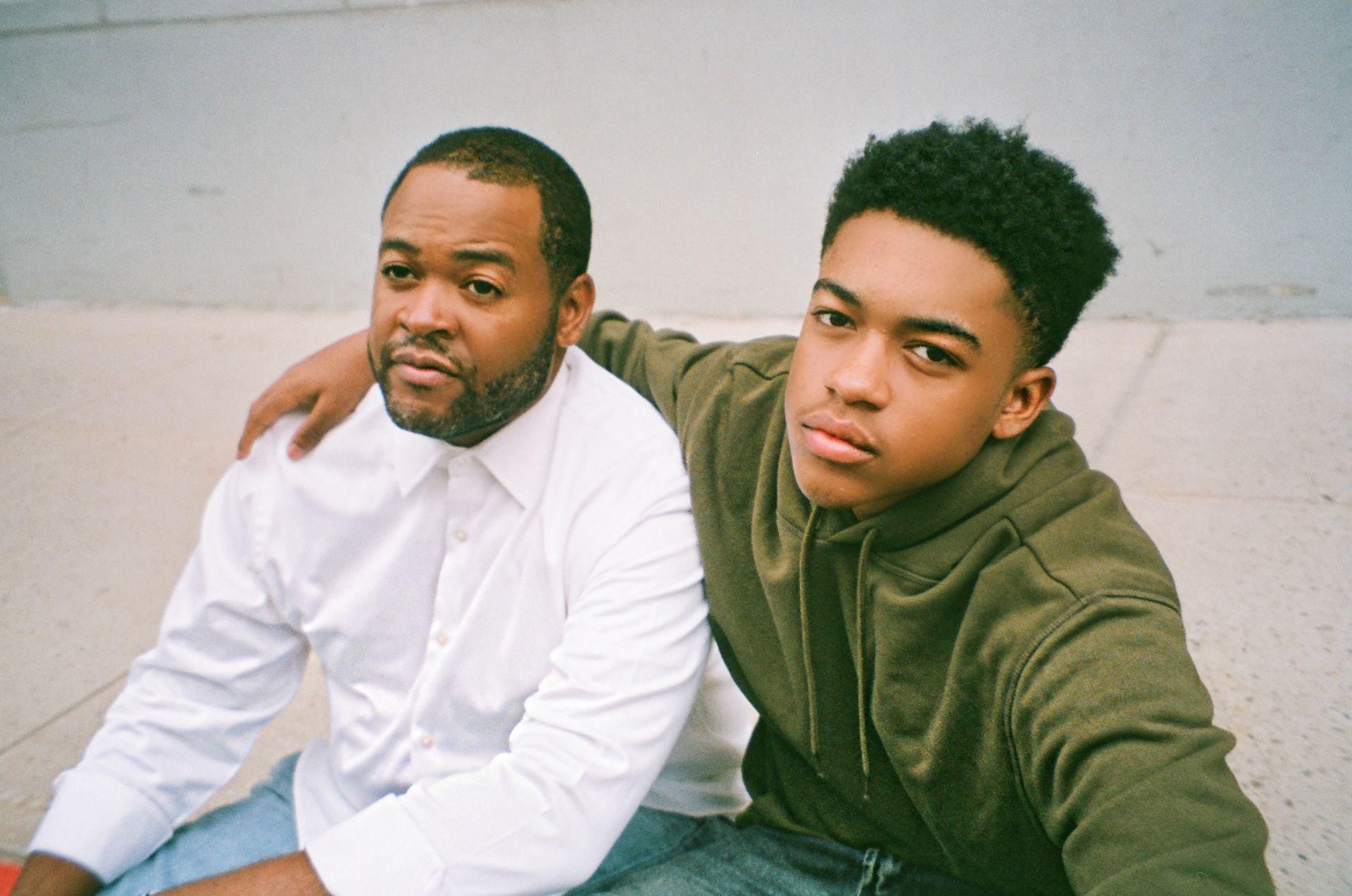
The conversation was far from easy. “The reality is that we’ve been in America for a long time, we’ve been black for a long time,” Al-Tereek tells Very Good Light. “One thing that I’ve tried to learn in my lifetime it that when these things occur, it’s mostly based in ignorance. Especially if it’s from a child,” he says.
What proceeded was a calm explanation on what Jai could do. It wasn’t to fight back, he explained. It was to educate and be a good example of what a loving individual could be. Besides, Jai had no other choice, he said. To fight back was a losing battle. “Fighting just fits into the negative stereotype of black people who are all aggressive and angry. That other kid might just be ignorant and go home without any baggage. But Jai becomes that angry black kid who now has to be monitored.”
Instead, Jai learned that it was through equipping himself with black American history, acknowledgment of his own identity and his family that allowed him to overcome.
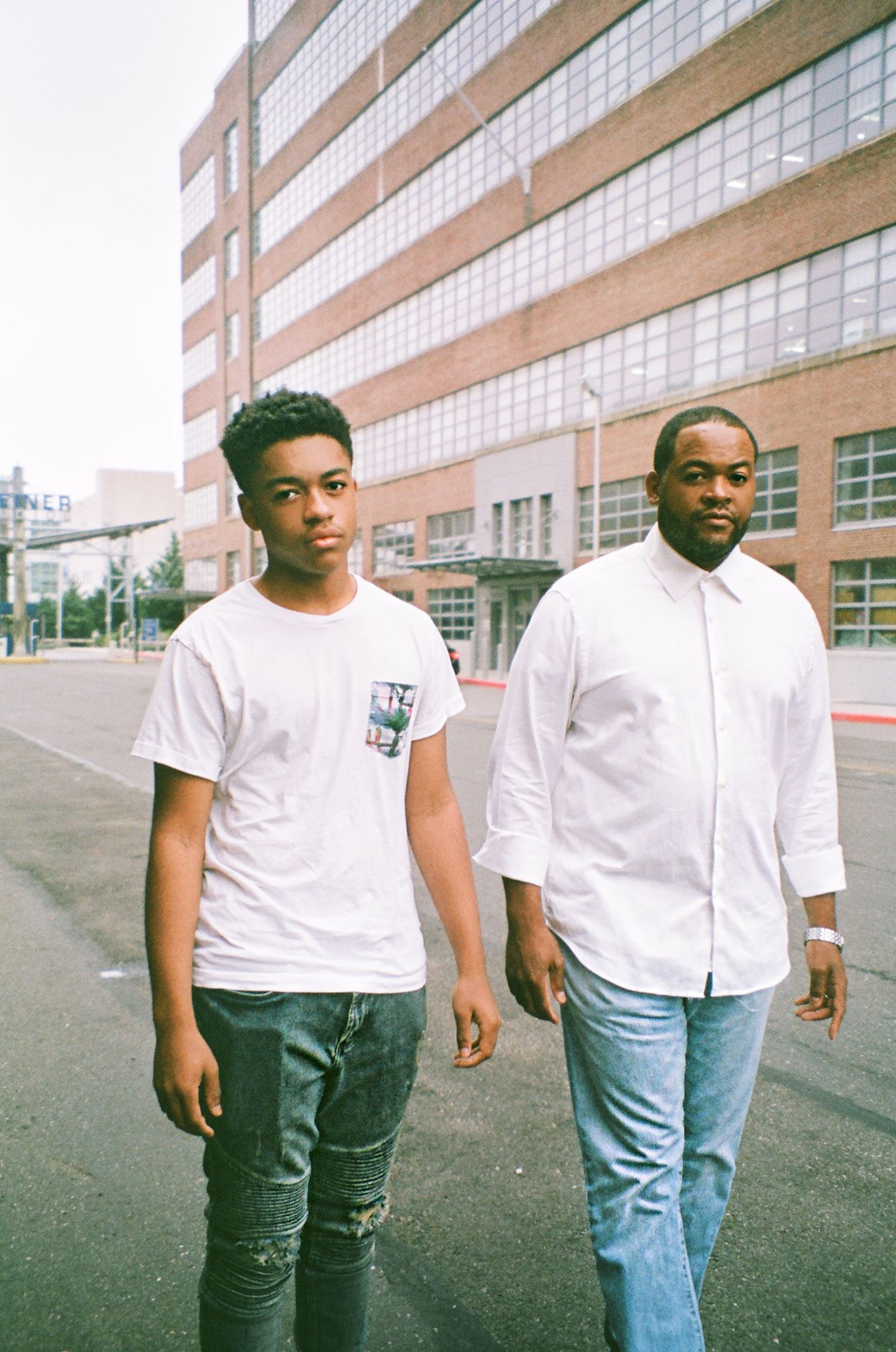
“We are spiritual people and we understand that these things exist,” Al-Tereek tells Very Good Light. “But what we can do is just keep becoming the best of examples, to make sure we get to the places we need to be. More so, know your history and your counterparts. That will help you keep moving.”
Today, Jai says that being able to rely on his father empowers him. “My dad taught me that being different is an asset, and that I’m a powerful [vessel] for change.”
Robert and Dave Christopherson, Utah
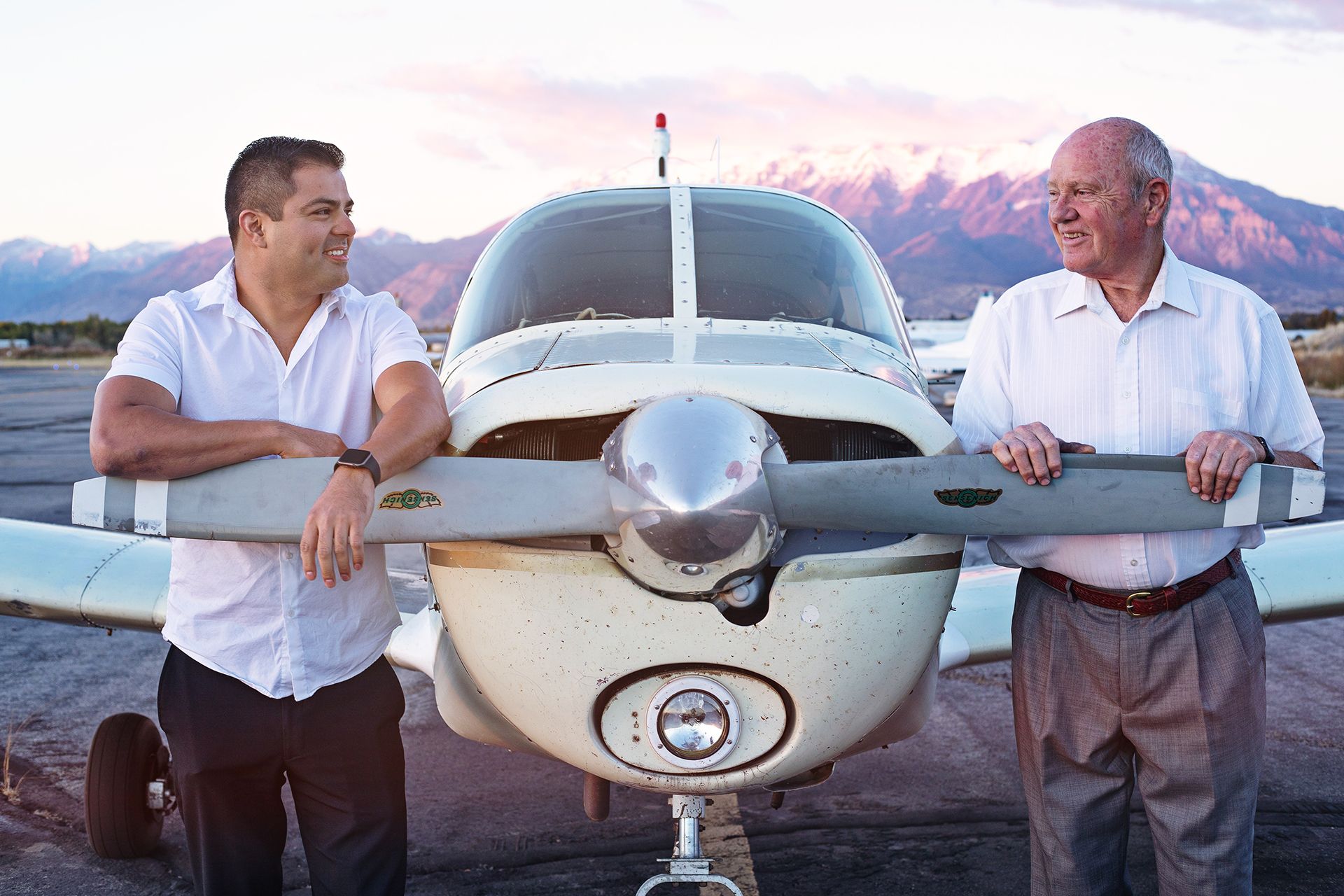
Before Dave Christopherson could walk, he flew.
His father, Robert, was a pilot and would take his children out on frequent trips in the friendly skies. Dave’s fondest childhood memories include going in and out of airports, flying impromptu to places like New Mexico, while spending quality family time above the clouds.
The two were inseparable ever since Dave met his father at an orphanage in El Salvador. “I always joke that he bought me,” Dave says with a laugh. “In all seriousness, we really got along during my younger years, we really understood how lucky we were to have each other.”
But things changed as Dave grew into his own as a teenager. In the midst of finding his own identity, the two began drifting apart. They would argue and have frequent disagreements. “We butted heads,” Dave recalls. “He was really stubborn and so was I.”
“My house, my rules,” Robert would say in the heat of the moment. And so, after turning 18, Dave decided he’d leave his home altogether in hopes of finding himself. One thing he wouldn’t do was fly planes like his dad, he thought. Ironically, he’d find himself joining the Air Force months later.
“I had no desire to go into flying, but my dad influenced me for sure,” he tells Very Good Light. “Once I joined the military, he saw I was doing something with my life and that’s when our relationship started to get better.”
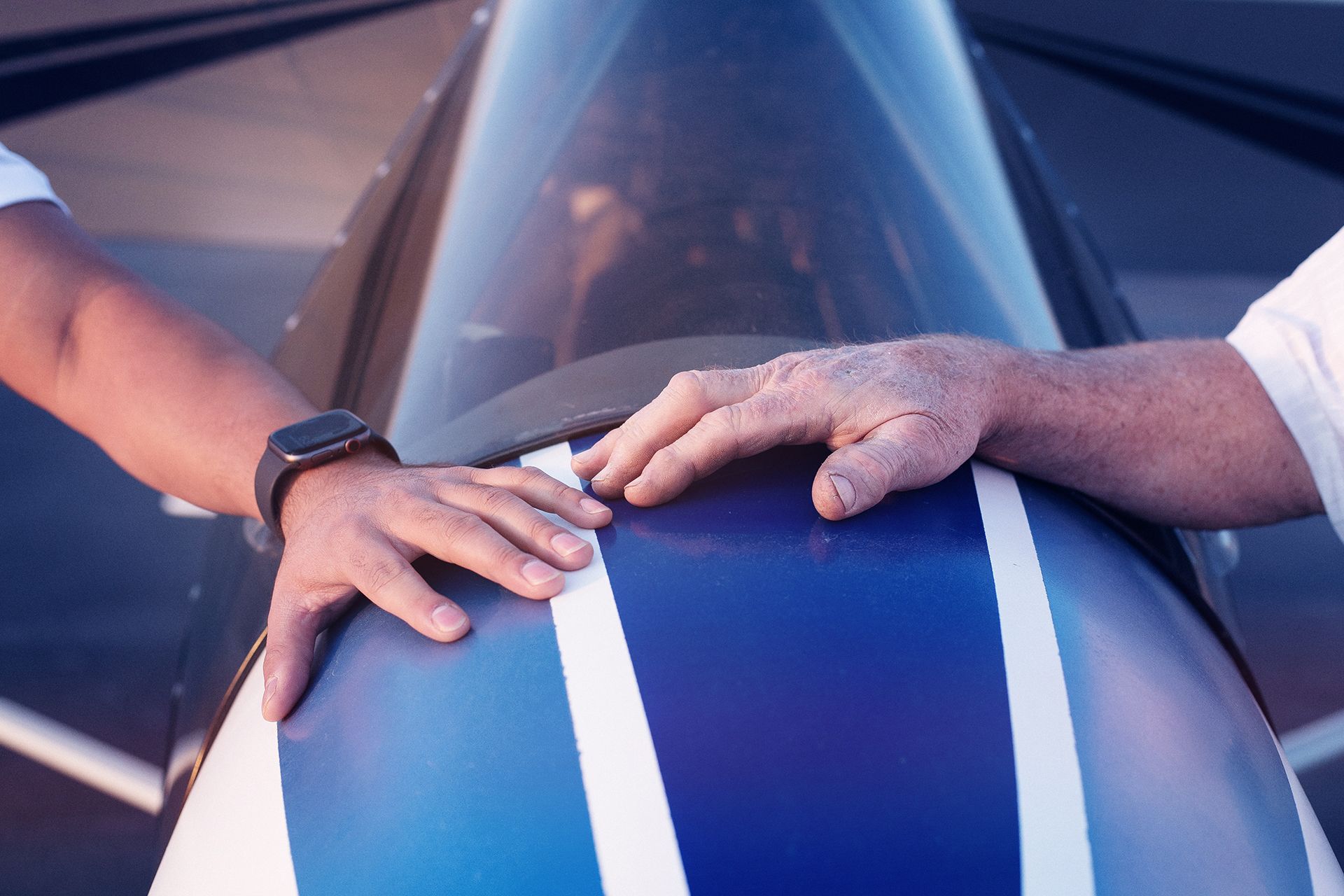
It was during flight training that Dave truly realized how much he needed the strength his father-son relationship could bring him. As Dave explains it, getting through flight school and pilot training is a grueling process.
“Picture yourself in front of the computer with your headset, joystick, two pedals and you have to keep this line centered in middle of the screen,” he explains. “Then there’s a headset that tells you words and asks things like what was the third letter of what was said.”
The days were long and the materials covered were completely abstruse. Most days would start at 5 a.m. and go for more than 12 hours. “I’d show up and I would have been studying for a test for a couple of hours, then I’d need to fly and do certain maneuvers,” he says.”It’s really stressful because if you get three strikes you’re out.”
“My dad means the world to me…”
The stress became almost too much and anxiety set in. Dave found himself on shaky ground. He was struggling to pass his exams and was on the brink of being kicked out of the program. That’s when he picked up the phone to call the only person who could help: his dad.
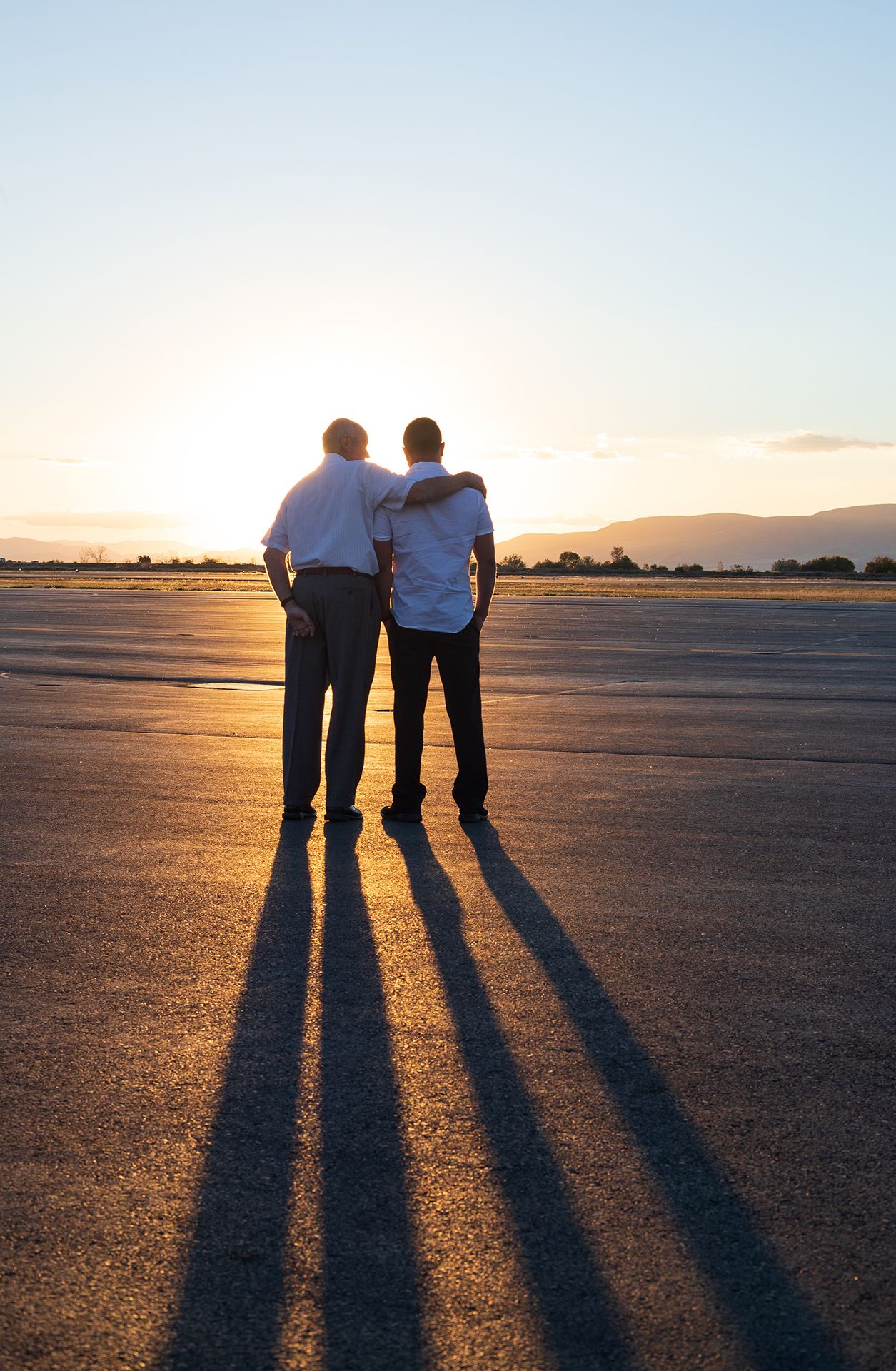
“You’re really smart.”
“You got this.”
“I believe in you,” his dad assured him.
“He’d remind me of who I was and where I came from,” Dave recalls.
But more so, it was his unconditional love that pushed Dave through. “What really helped was when he told me that he loved me, and that whatever happens he’d still love me and still think I was awesome.”
Those words of wisdom and love got Dave through. Today, Dave’s a full-time pilot. But more than any lesson he learned, his father taught him how to be a man. “My dad means the world to me,” Dave says. “Though I didn’t see it growing up, he has good quality morals. And has great values and he means the world to me. I wouldn’t be who I am without him.”
Joshua, 59 and Jacob Yi, 23, Georgia
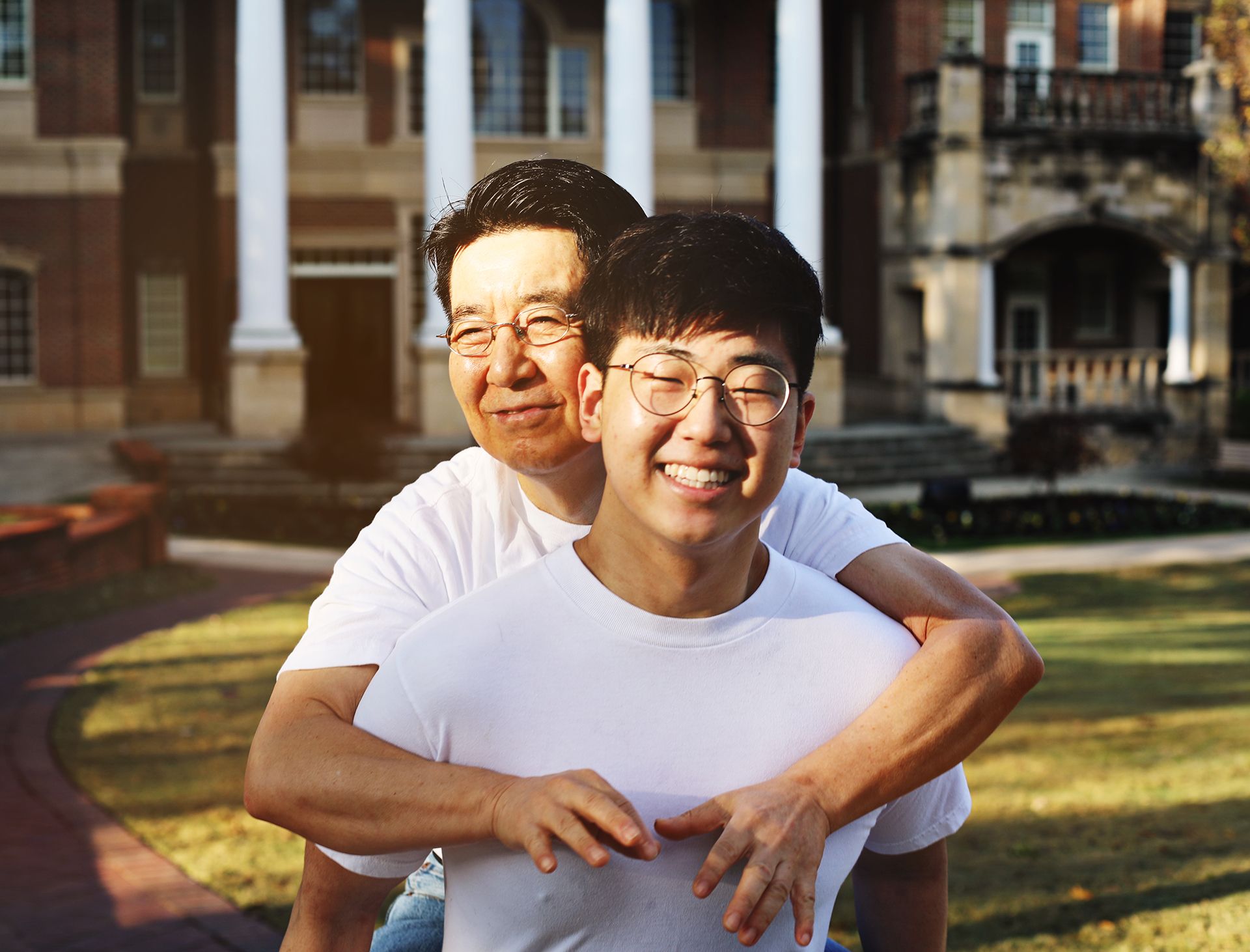
Ever since he was young, Jacob has been a guy to always work for what he wanted.
He graduated with honors. Attended his dream school. Was always at the top of his class. And so, when he graduated last year with a degree in chemistry, he thought that he’d easily step into his next role: medical student.
But things didn’t work out as he’d hoped. While all of his best friends moved away and were accepted into graduate school, it was Jacob who found himself in a position he’d never been in before: uncertainty.
“I don’t want to compare myself to others, but seeing my best friends move on and progress in their lives while I was still waiting for my future to begin was difficult,” he tells Very Good Light. “I felt left out and pressured to start something quickly.”
It’s during this time that Jacob had painful bouts of self-doubt. He didn’t have a Plan B. For a student who’d excelled, met and exceeded test scores, his situation was not only frustrating but cut deep.
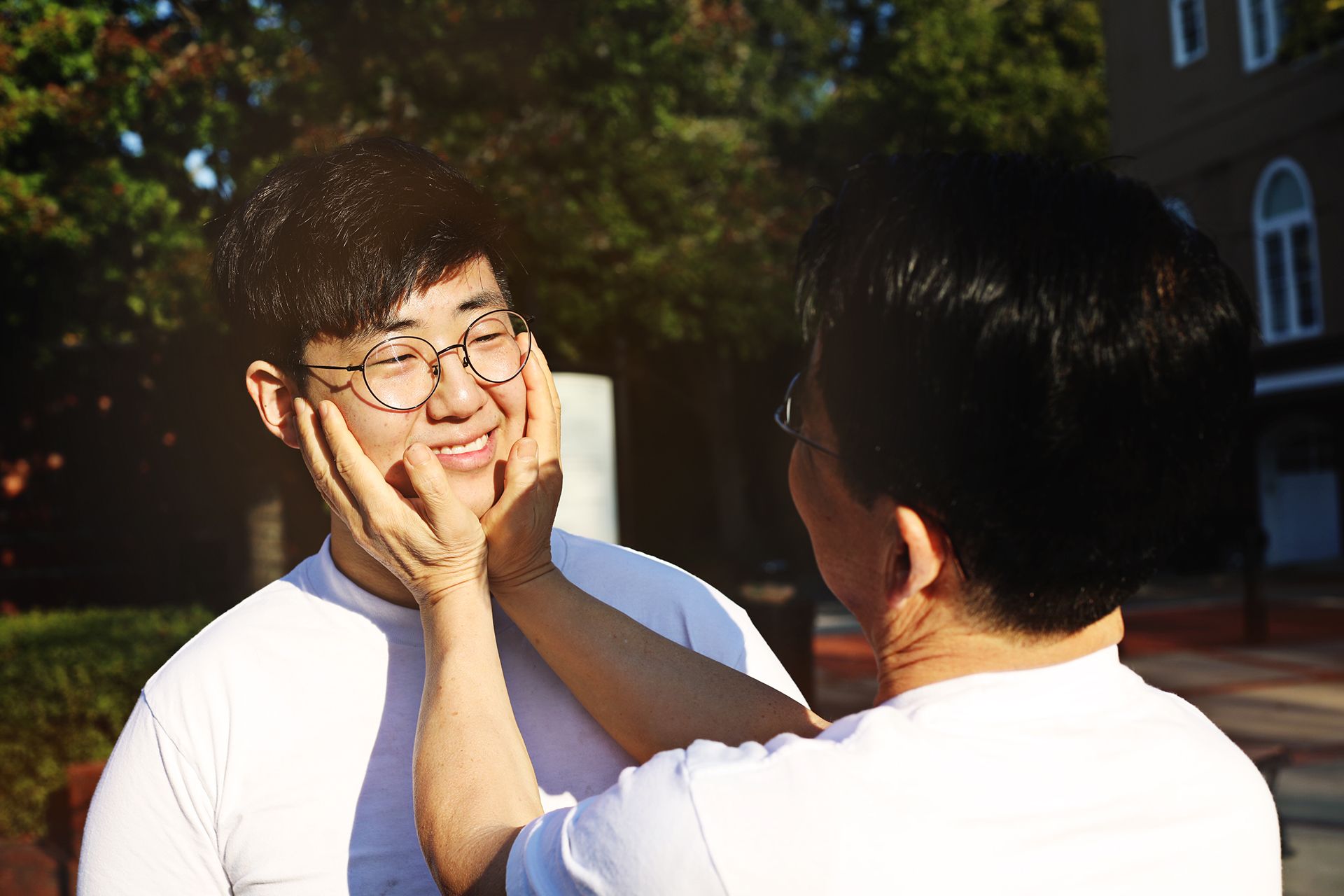
“I felt like a failure.”
It was here that he leaned on his father, Joshua, for guidance. In a world that seemed to be spinning out of control, it was his father who became the constant he needed to stay grounded.
“Our Korean culture isn’t vocal about self-worth.”
“I’m never the vocal type and I don’t bring my concerns straight to my dad,” Jacob says. “So it was really amazing that my dad actually confronted me one day about how I was really doing, which allowed me to open up.”
His father, who received his own Ph.D. years before, empathized with his son. He, too, went through years of education, heartache and adversity.
“Don’t compare yourself to others,” Joshua recalls telling his son. “Your experiences are valid, too. You’re growing, learning and always progressing. Don’t discount this period in your life.”
This affirmation, Jacob says, is what allowed him to pull through.
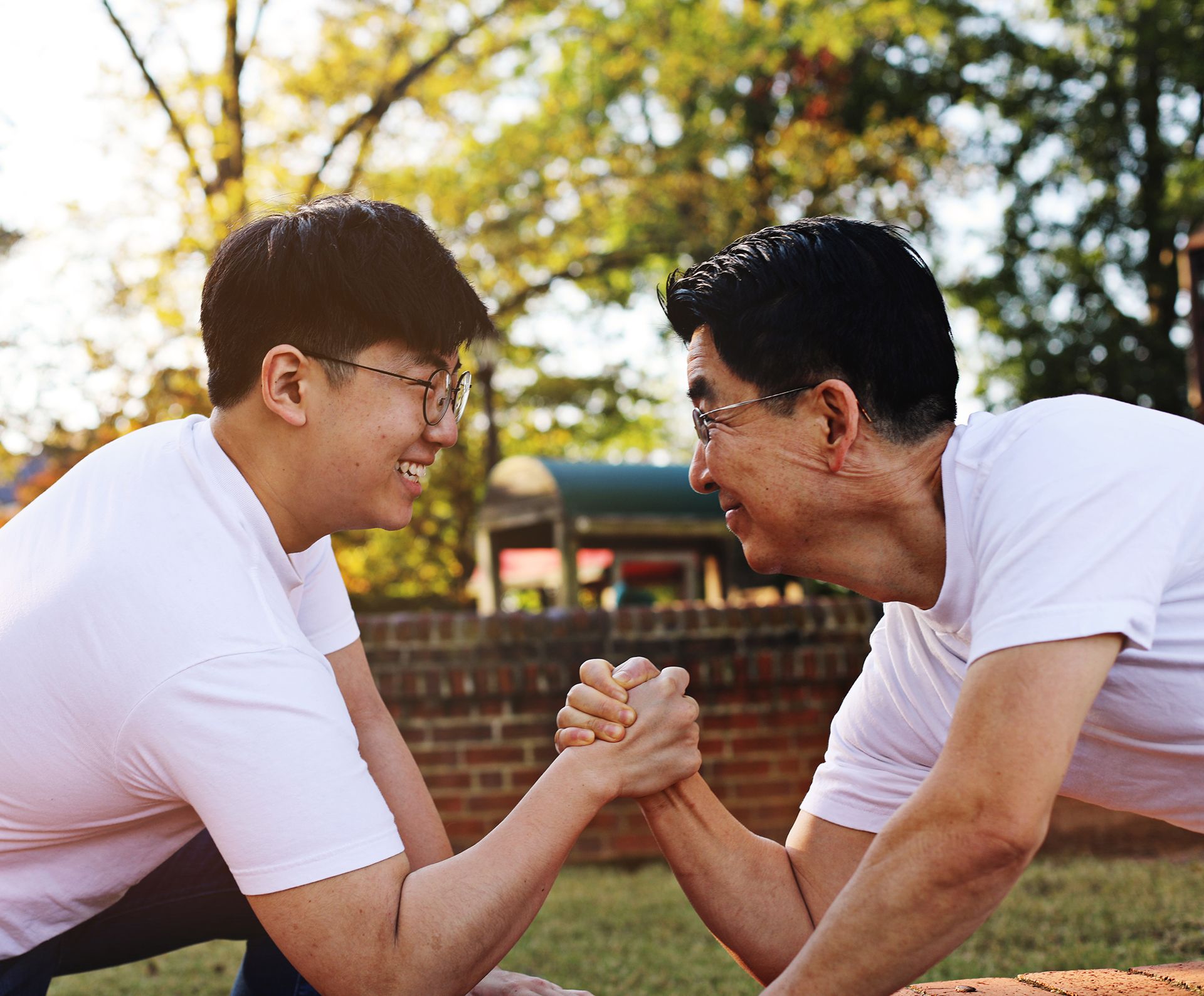
“Our Korean culture isn’t vocal about self-worth,” Jacob admits. “We focus on being humble to an extreme. But in that moment my dad told me outright that I, too, am worthy of a great life – no matter what that looks like.”
“More than anything, I told him that I believed in him,” Joshua chimes in. “More so, I didn’t allow him to forget his dreams of being a doctor. If you really want to do this, go to the end and try your best, I said. Don’t have any regrets.”
It was this moment in Jacob’s 23-years of life that he realized that his father really cared about him. “I never thought my dad could understand me like a friend,” he says to Very Good Light. “It’s ingrained in our Korean culture that a dad is here [higher] and you, as a son, are here [below]. But he’s someone I can truly be vulnerable with, without judgment. He’s always on my side. I can be safe with him. And his love allows me to love myself.”
Matthew and Chandler Sparks, Colorado
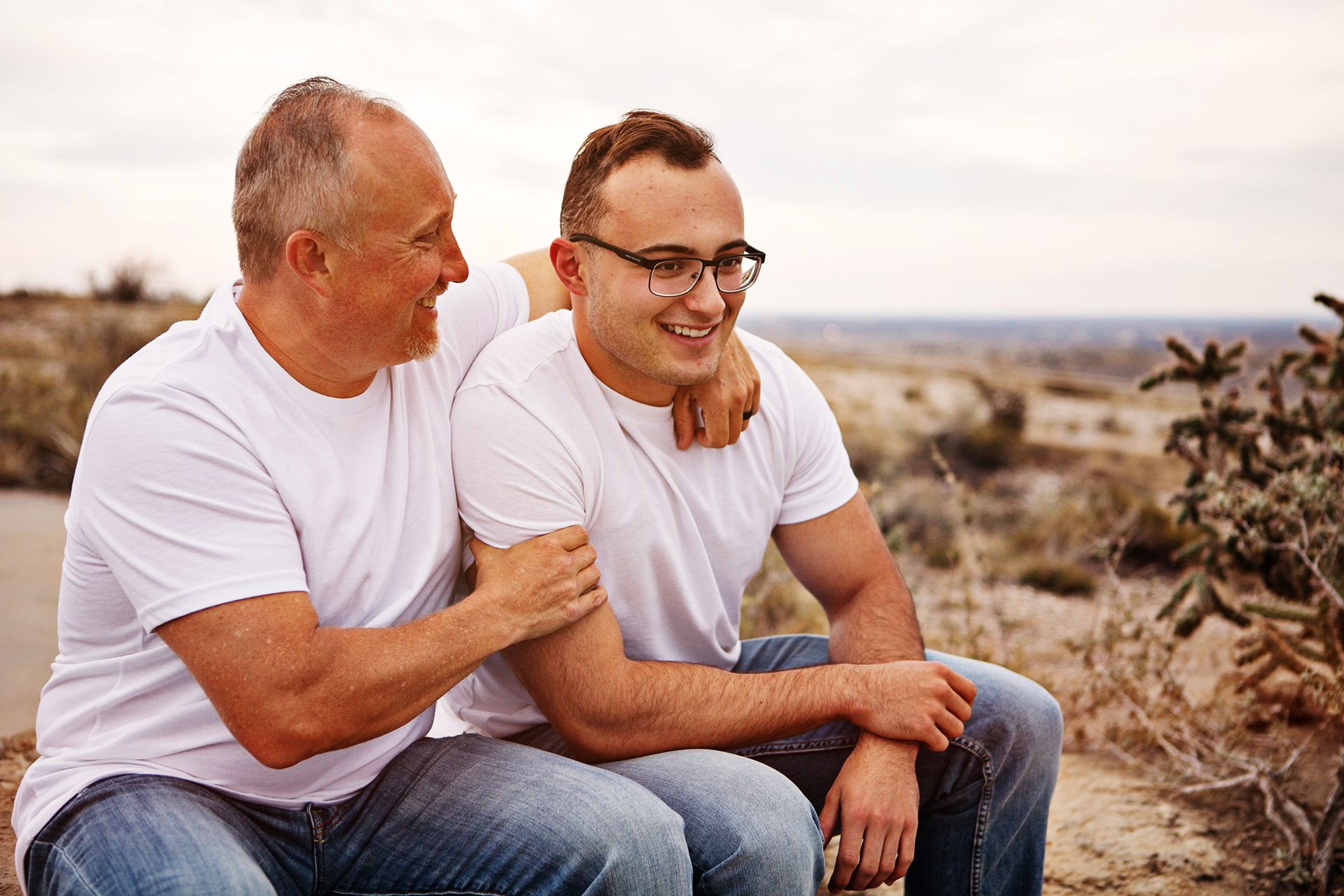
Asthma could have slowed Chandler Sparks down, but his father, Matthew, wouldn’t allow it.
“Resiliency is a learned skill and I have always wanted to teach my children to become resilient people,” explains Matthew to Very Good Light. “This skill can be applied in all aspects of a person’s life, especially in difficult times or situations.”
As a child, Chandler experienced asthmatic symptoms and often times had difficulty breathing. It didn’t help that he and his entire family lived in Colorado, one of the highest elevations in the country. To help him overcome, Matthew signed himself and his son up for annual races to strengthen his breathing muscles.
“I’d gained this newfound confidence in myself.”
“Of course, we listened to what our doctor said about his lungs,” Matthew says. “But my personal goal was to build up his lungs and his overall physical health. We wanted him to start walking then running. The lungs are a muscle and the more you use it the stronger it becomes.”
At first, the races were intimidating. Chandler was understandably timid, would stay close to his dad in fear that an asthma attack would hit him, clutching to his inhaler. By the 6th grade, he started gaining a little confidence by wanting to go faster. In the 7th, he started running in front of his dad. By the time 8th grade came, he was off running on his own. Soon enough, he no longer needed his inhaler.
It was a big moment for both of them.
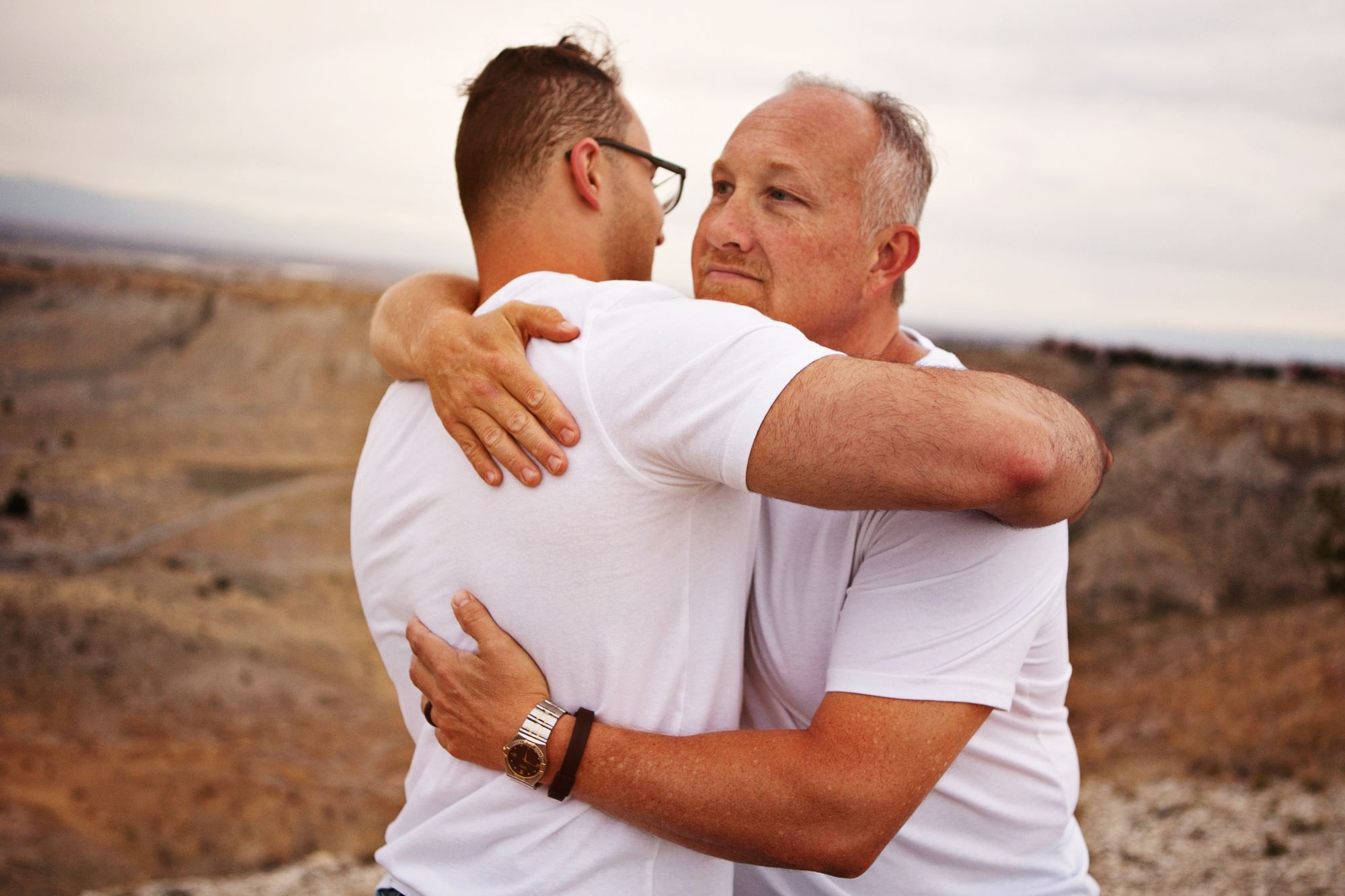
Years later, it was Matthew who leaned on his son Chandler for help. He was training for the grueling Ragnar race, one that goes for 200-miles. With so much intense training, Matthew injured his knee. He didn’t know if he’d get to the race. But Chandler wouldn’t let him quit.
“I challenged him to do some outdoor elevation training,” Chandler recalls. Matthew admits he was very nervous but accepted the invite nonetheless. At first, they took it slow by hiking Quandary Peak, the highest summit in the Rocky Mountains. After, they completed the Decalabron Loop, a challenge that hits four 14,000-feet mountains in a single hike. Throughout it all, Chandler was there, cheering his dad along.
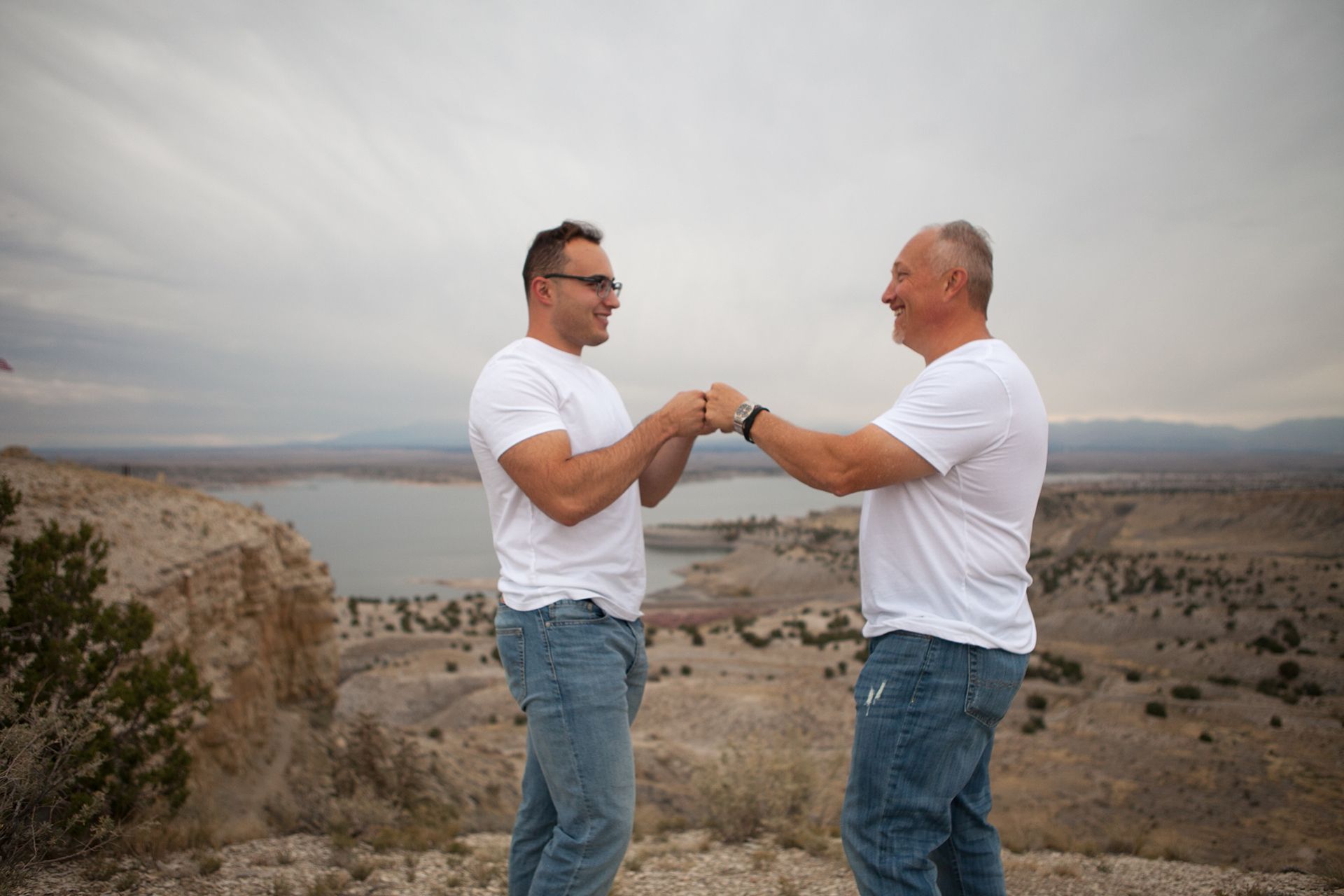
“I needed a push and he was checking up on me in a caring manner,” Matthew says. Chandler was leading the way, tending to his dad at every turn. It was in that moment that Matthew took everything in and saw the bigger picture. Everything came full circle. “Watching him take the lead and guide me instead of me guiding him was such a joy.”
Weeks later, Matthew joined the Ragnar race and finished. “Surprisingly, my knee did feel better,” he says in retrospect. “I’d gained this newfound confidence in myself and it was because of Chandler, who taught me what it means to be resilient.”





